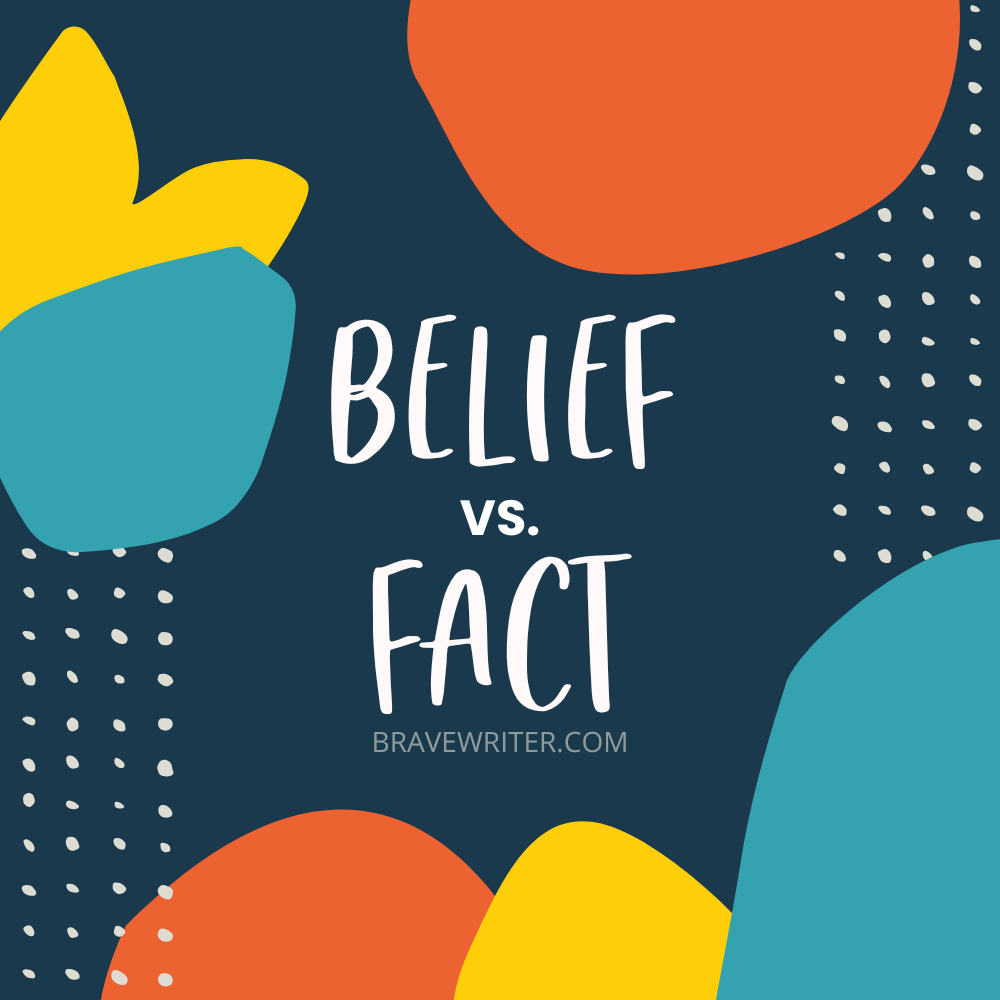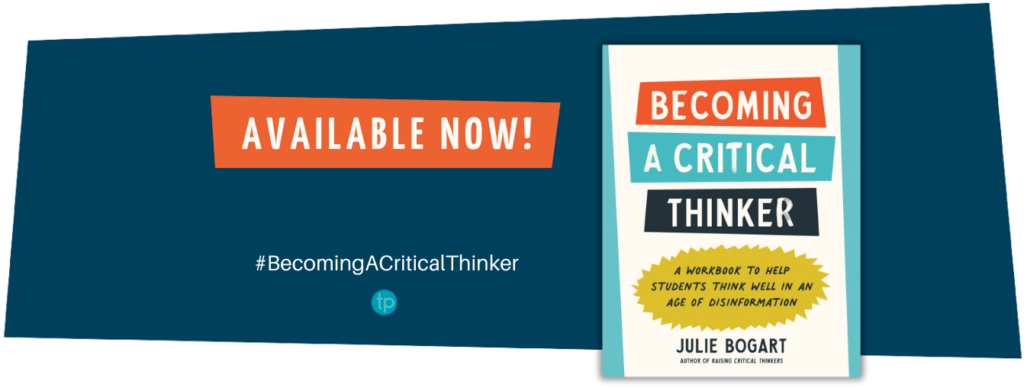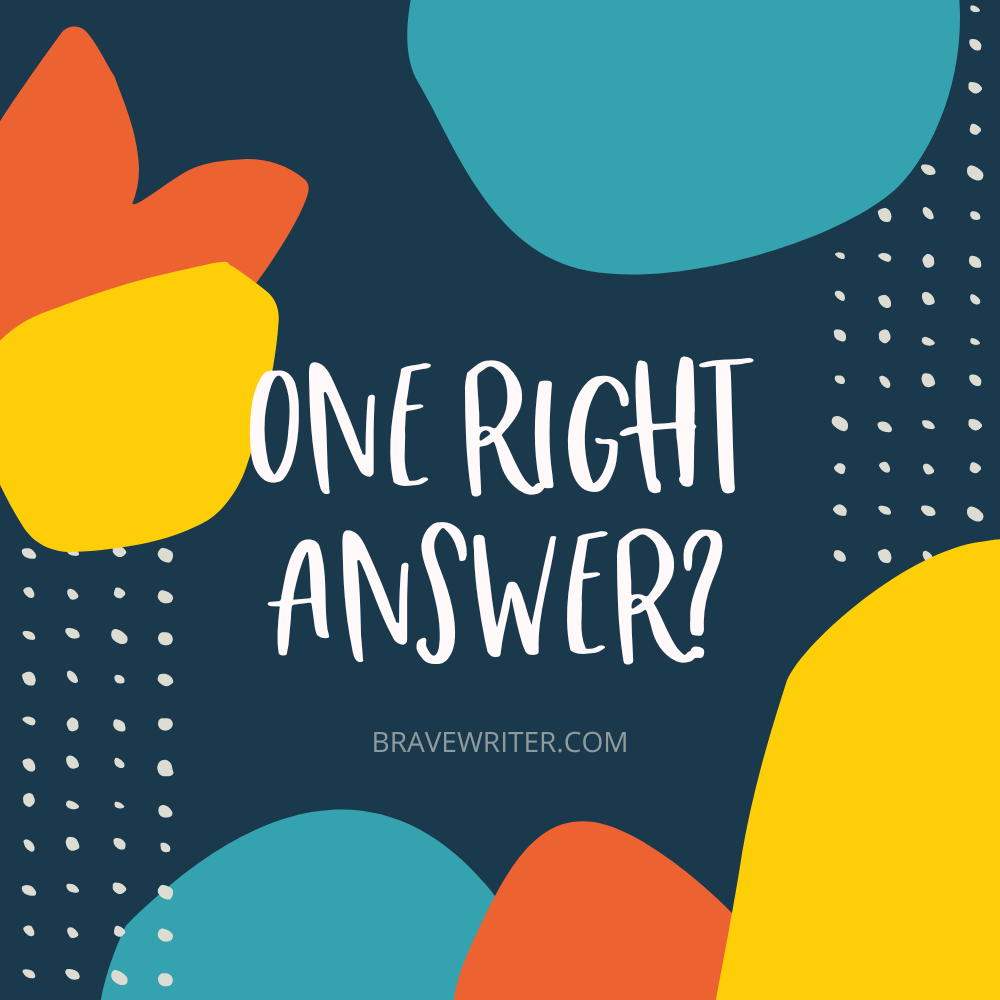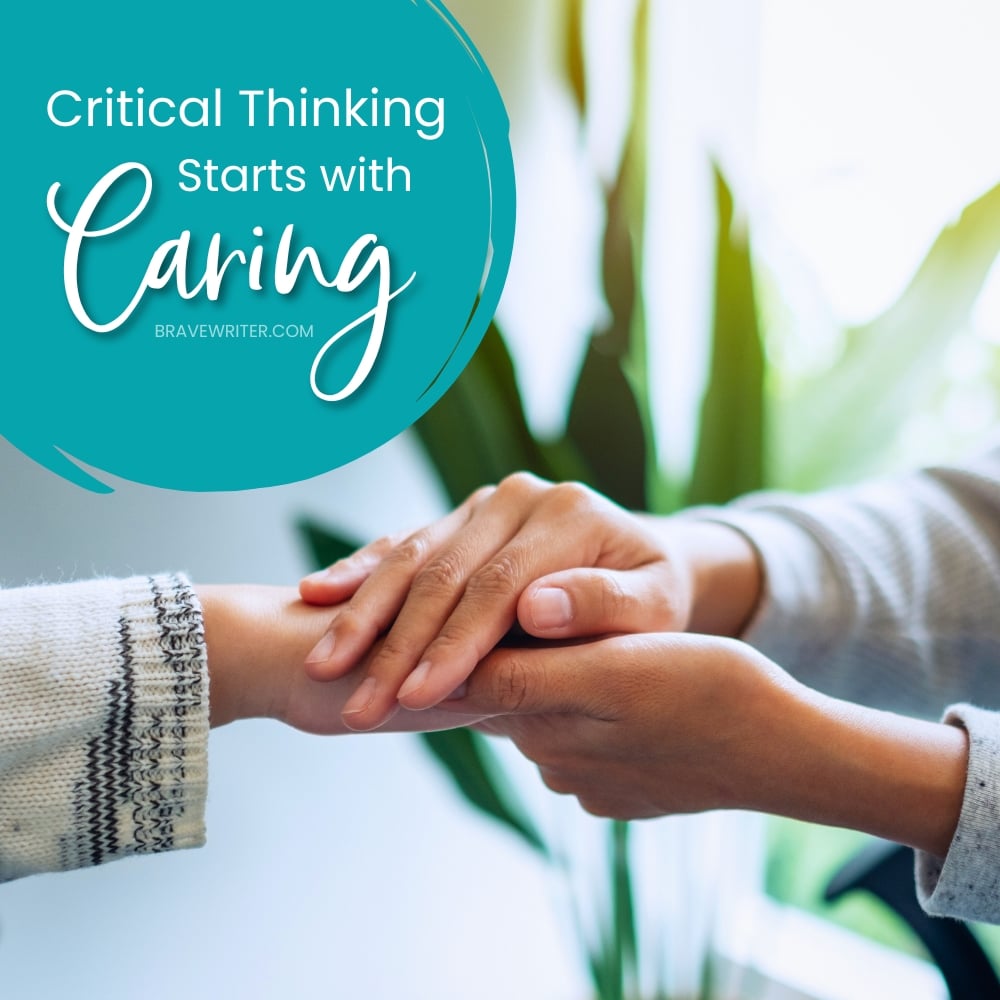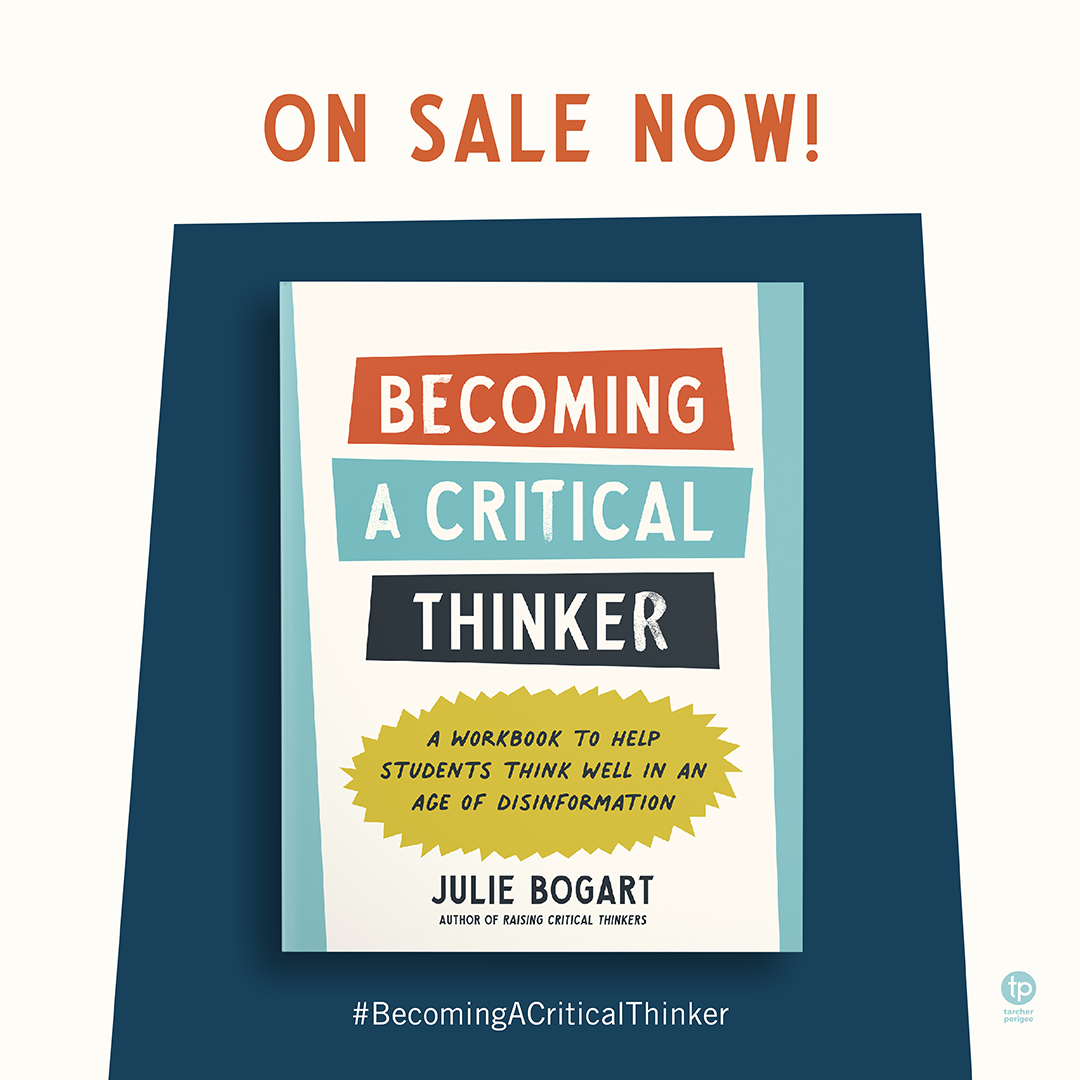
Our students need to believe that they can rely on parents and teachers who will stand by them, not abandon them—even when we find their reasoning incomplete.
The tough part about raising teens is that they test a belief system that sometimes feels illogical or dangerous to you.
- Stick by them.
- Talk with them.
- Be curious and interested.
Teens deserve parents who are capable of holding space for their developing brains. Don’t worry. The things you thought you knew so confidently at 15 underwent revision in your 20s and 30s and 40s. Ideas can grow and change when we feel free to think, rather than defend.
What you don’t want to lose is connection between parent and child. Your kids are good. They’re your beautiful children. They are playing with ideas the same way they played with Melissa and Doug toys. You can do it!
Connection is everything.
—exceprt from Julie’s book RAISING CRITICAL THINKERS


